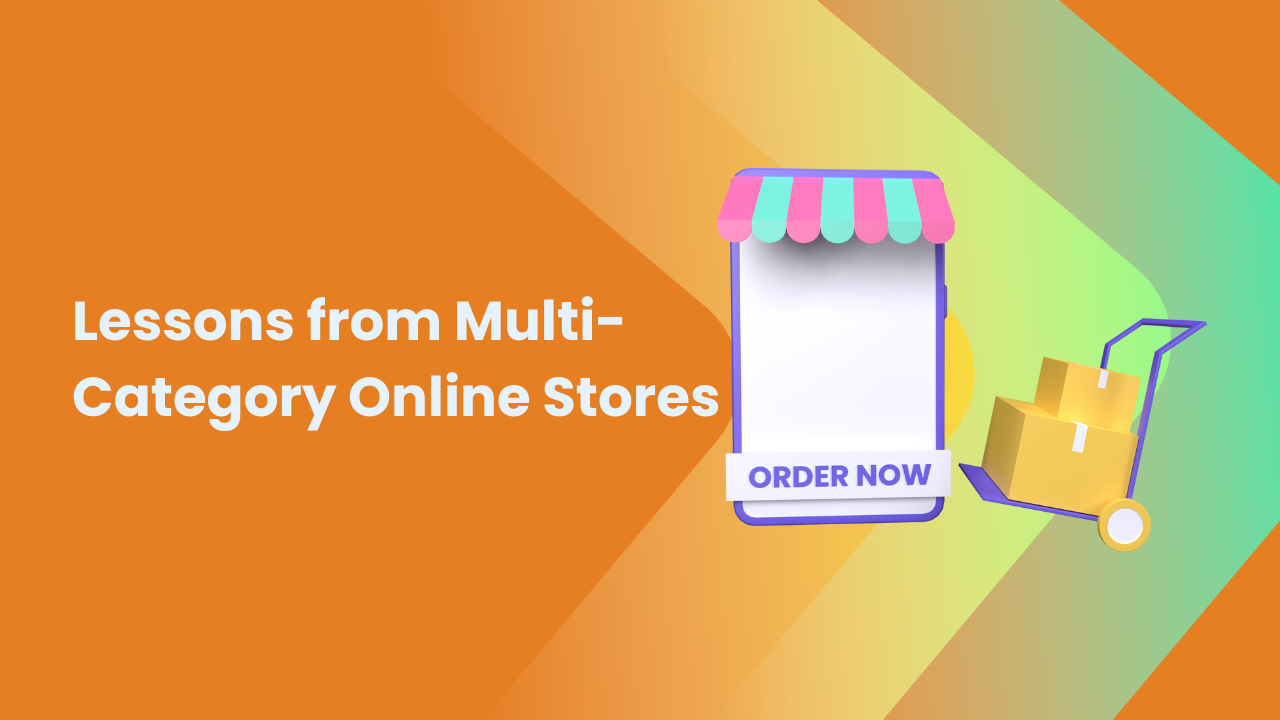Share this Article
In Nepal, the business-to-business (B2B) market is growing at an impressive rate, as more companies and entrepreneurs embrace digital transformation. One of the most effective strategies for boosting B2B sales in this dynamic environment is offering bulk discounts. Bulk discounts—price reductions given to customers who buy in large quantities—can be a powerful tool for driving sales, fostering long-term relationships, and enhancing customer loyalty in the B2B space.
The B2B market in Nepal is diverse, ranging from small family-owned businesses to large enterprises that rely on goods and services to operate. Bulk discounts are an effective way to cater to this variety of businesses and build mutually beneficial relationships. In this article, we will delve into the role of bulk discounts in driving B2B sales in Nepal, explaining their benefits, how they work, and best practices for implementing them.
Understanding Bulk Discounts in the B2B Context
Before delving into the specifics, it's essential to understand what bulk discounts are and how they apply to B2B transactions.
A bulk discount is a pricing strategy in which the price per unit of a product or service decreases as the volume purchased increases. This is a common practice in B2B transactions, where businesses often need to buy larger quantities of goods to fulfill operational needs, production, or resale. Bulk discounts are typically offered as a percentage off the regular price, or through tiered pricing, where the price drops as the order volume surpasses certain thresholds.
In Nepal, the concept of bulk purchasing is particularly relevant, as many businesses—especially those in the manufacturing, construction, and retail sectors—require large quantities of raw materials, supplies, or products. Offering bulk discounts allows sellers to cater to these needs while also increasing their sales and building a larger customer base.
How Bulk Discounts Drive B2B Sales in Nepal
Bulk discounts offer multiple advantages for both buyers and sellers. For B2B businesses in Nepal, the implementation of bulk discounts can lead to increased sales, customer retention, and stronger relationships. Below are some key ways in which bulk discounts can drive B2B sales in Nepal:
1. Encouraging Larger Orders and Repeat Business
One of the primary reasons bulk discounts work well in B2B sales is that they encourage larger orders. In Nepal, where many businesses are still in the early stages of digital adoption, offering bulk discounts can incentivize businesses to purchase larger quantities of products or services upfront, leading to more significant sales volumes. When a buyer sees the opportunity to save by purchasing in bulk, they are more likely to increase their order size, which benefits both the buyer and the seller.
Additionally, bulk discounts can foster repeat business. When a business buys in bulk and saves money, they are more likely to return for future orders, knowing they can continue to benefit from these discounts. The more often a buyer purchases from a supplier, the stronger the relationship becomes, and the more likely they are to become a loyal customer.
2. Increasing Competitive Advantage
In a growing market like Nepal, competition among B2B companies is fierce. Offering bulk discounts can give your business a competitive edge. When businesses are comparing suppliers, the price is often a key factor in their decision-making process. By offering bulk discounts, you position your company as a more attractive option compared to others that may not offer similar pricing benefits.
For example, in Nepal’s competitive wholesale market, a supplier offering bulk discounts on construction materials or electronics could easily win over businesses looking for ways to reduce costs. This pricing strategy can also be especially effective for suppliers who are trying to establish themselves in the market or gain a foothold in a new industry segment.
3. Enhancing Customer Loyalty and Long-Term Relationships
B2B relationships in Nepal are often long-term, with businesses relying on trusted suppliers for regular transactions. Bulk discounts can strengthen these relationships by rewarding repeat customers with price breaks for their continued business. By offering discounted prices for larger orders, businesses feel appreciated, and the suppliers build a reputation for offering valuable, cost-saving deals.
Loyalty is particularly important in Nepal, where word-of-mouth recommendations and personal connections often play a significant role in business decisions. If a customer feels valued through bulk discounts, they are more likely to recommend your business to others and keep coming back for future purchases.
4. Optimizing Cash Flow and Inventory Management
From a seller’s perspective, bulk discounts can help optimize cash flow by encouraging customers to make larger purchases at once. In a B2B context, this can be particularly important, as many suppliers deal with large quantities of goods that need to be moved quickly to make room for new inventory. By offering bulk discounts, suppliers can clear out stock more efficiently, freeing up space for newer, higher-demand products.
Additionally, bulk purchases allow businesses to maintain better control over their inventory. Selling in bulk means less frequent stock turnover, helping businesses avoid issues such as overstocking or stockouts.
5. Building Trust and Professionalism
Offering bulk discounts can also be a sign of professionalism and reliability. In the B2B market, buyers are looking for suppliers they can trust to provide consistent products and services. Offering a clear, structured bulk discount policy demonstrates that a supplier understands the needs of businesses and is willing to offer flexible pricing that meets those needs.
For businesses in Nepal, where personal relationships often drive commerce, bulk discounts can help build trust with customers. If a buyer sees that a supplier is genuinely offering discounts based on their purchasing behavior and needs, it builds a sense of fairness and reliability that encourages repeat transactions.
Types of Bulk Discounts for B2B Sales in Nepal
There are different ways to structure bulk discounts, and the method you choose will depend on your business model, industry, and customer base. Below are some common types of bulk discounts that can work well in the Nepali B2B market:
1. Flat Percentage Discount
A flat percentage discount is a straightforward pricing strategy where a buyer receives a certain percentage off their order once it exceeds a specific quantity threshold. For example, a wholesaler might offer a 10% discount for orders over 100 units, 15% off for orders over 200 units, and so on.
2. Tiered Pricing
Tiered pricing involves offering different levels of discounts based on the volume of products purchased. For instance, a business could offer a 5% discount for 50-100 units, 10% for 101-200 units, and 15% for orders of more than 200 units. This approach encourages customers to buy more to qualify for a higher discount, maximizing sales.
3. Bundle Discounts
Bundle discounts offer discounts when buyers purchase a combination of products together. This method is effective in B2B environments where businesses need a variety of products in bulk. For example, a supplier could offer a discount on a package deal that includes several related items, such as office supplies, machinery parts, or raw materials.
4. Seasonal Discounts
Seasonal bulk discounts are typically offered during specific times of the year when demand for certain products may be higher. In Nepal, this could include offering bulk discounts on items related to festivals or specific seasons, such as agricultural supplies before planting season or construction materials during a peak building season.
Best Practices for Implementing Bulk Discounts in Nepal
While bulk discounts can significantly boost your B2B sales, it is essential to implement them strategically. Here are some best practices for offering bulk discounts in Nepal:
- Understand Your Customer’s Needs: Before offering bulk discounts, it’s crucial to understand your customers’ buying patterns and preferences. Tailor your discount structure to meet the specific needs of your target market in Nepal.
- Clearly Communicate Discount Terms: Make sure the terms and conditions of the bulk discount are clearly communicated to your customers. Transparency ensures that there are no misunderstandings and helps build trust.
- Offer Discounts for Long-Term Contracts: Consider offering bulk discounts as part of long-term contracts with customers. This helps lock in repeat business and encourages larger purchases over time.
- Use Digital Platforms for Easy Access: Many businesses in Nepal are increasingly turning to online platforms to manage their orders. Ensure that your bulk discounts are easy to access through your website or e-commerce platform. Automated discount calculations can improve the customer experience and drive more sales.
- Monitor Profit Margins: While bulk discounts can drive more sales, it’s important to ensure that your profit margins remain healthy. Calculate the impact of bulk discounts on your bottom line and adjust your pricing strategy accordingly.
Conclusion
Bulk discounts are a powerful tool for driving B2B sales in Nepal. By offering discounts based on the volume of purchases, businesses can encourage larger orders, increase customer loyalty, and gain a competitive advantage in the market. In a growing and competitive B2B landscape, understanding how to leverage bulk discounts can play a key role in building long-term relationships with customers and ensuring sustained growth.
By applying the right strategies, Nepali businesses can effectively use bulk discounts to attract more customers, optimize their inventory, and improve cash flow—all while contributing to the broader development of Nepal’s e-commerce and business landscape.
Categories:
E-commerce Tips & Tutorials
Tags:
NepalWholesaleDeals
,
BulkBuyNepal
,
NepaliBusinessOffers
,
NepalBusinessGrowth







